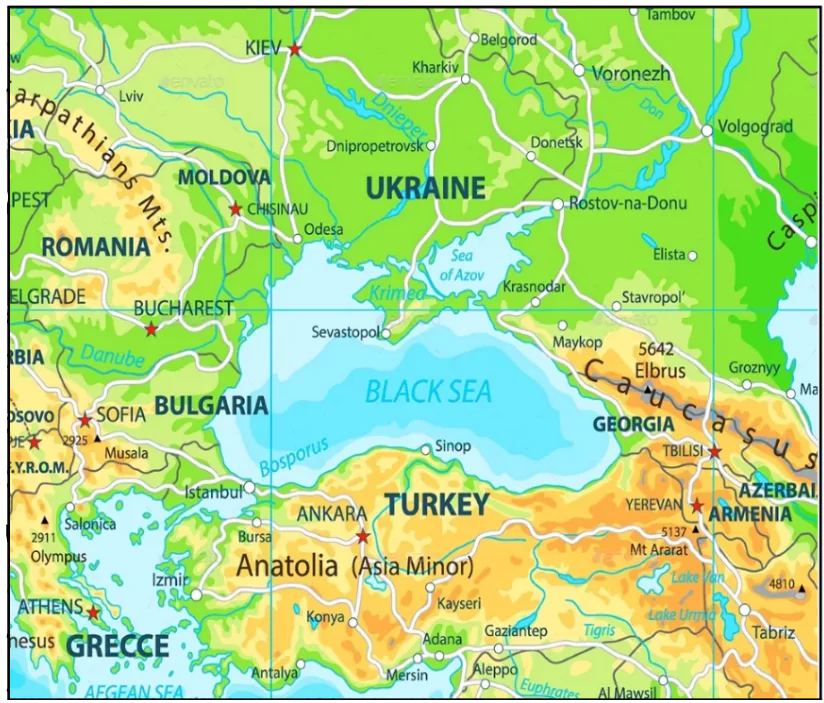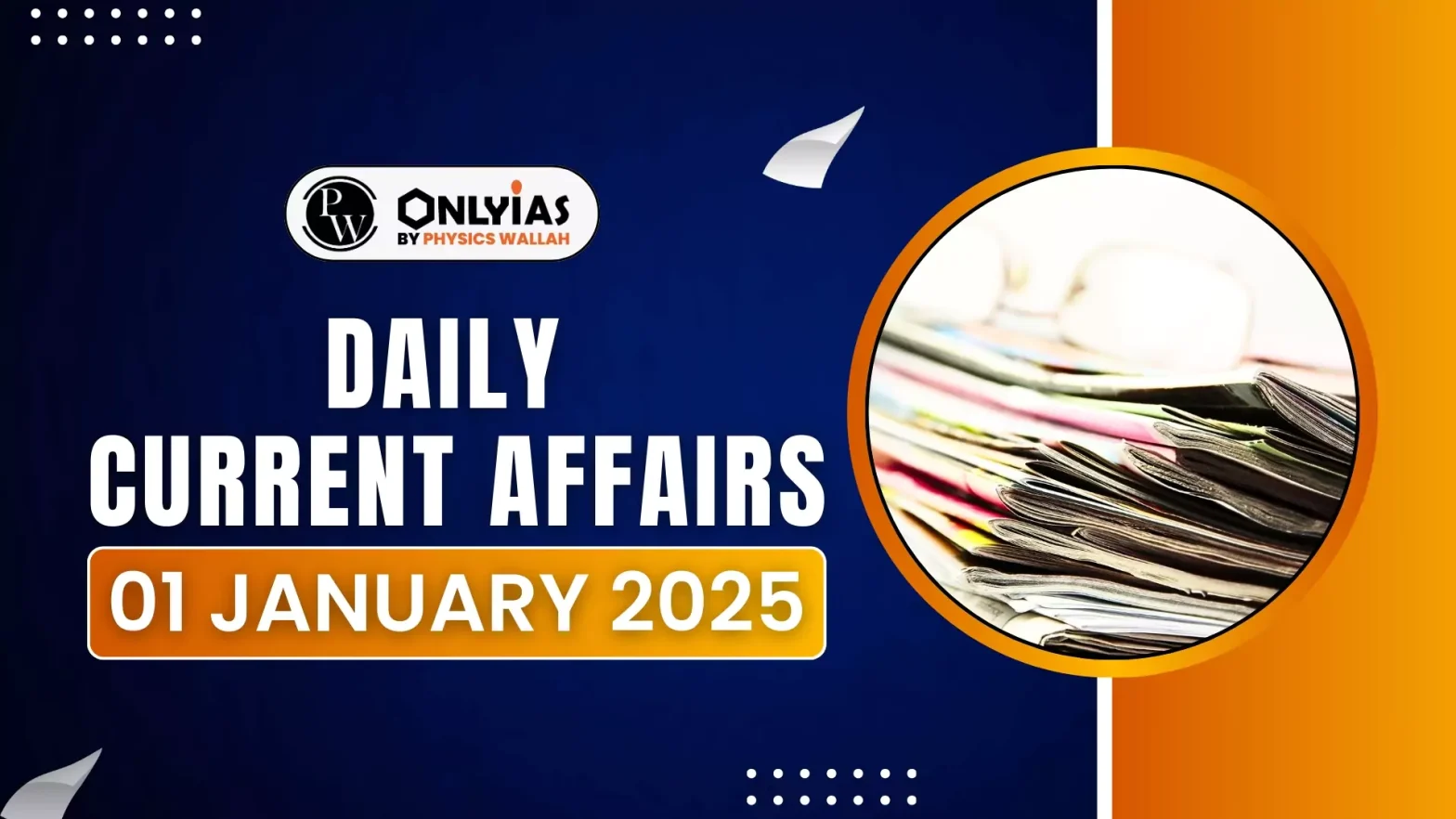Authorities in Russia’s southern Krasnodar region declared a region-wide emergency after a storm damaged two tankers in the Kerch Strait near Anapa.
About Oil Spill
- An oil spill is the release of liquid petroleum hydrocarbons into the environment, primarily the marine ecosystem.
- It’s a form of pollution that can have devastating consequences for wildlife, marine habitats, and coastal economies.
Enroll now for UPSC Online Course
Sources of oil spills
- Accidents involving tankers, barges, and other vessels: Collisions, groundings, and equipment failures can lead to oil spills.
- Offshore oil operations: Drilling rigs, pipelines, and production platforms can experience leaks or blowouts.
- Pipelines: Ruptured pipelines due to corrosion, ground movement, or construction accidents can release oil into the environment.
- Refineries and storage facilities: Equipment failures, leaks, and spills during storage or transportation can occur.
- Natural disasters: Storms, hurricanes, and earthquakes can damage oil infrastructure and cause spills.
- Human error: Mistakes during oil transfer operations, maintenance, or other activities can contribute to spills.
About the Black Sea

Location:
- The Black Sea is a large inland sea at the southeastern extremity of Europe.
- It is a marginal sea of the Atlantic Ocean.
Surrounding Areas
- West: Bordered by the Balkan Peninsula in Southeastern Europe.
- East: Flanked by the Caucasus.
- North: Adjacent to the East European Plains.
- South: Lies near Anatolia of Western Asia.
Bordering Countries
- The Black Sea is bordered by Russia, Ukraine, Turkey, Bulgaria, and Georgia.
- Romania has an opening to the Black Sea.
- The Crimean Peninsula extends into it from the north.
Connections
- The Black Sea connects to the Aegean Sea (part of the Mediterranean) via the Bosporus Strait, Sea of Marmara, and Dardanelles Strait.
- It links to the Sea of Azov through the Kerch Strait.
- Kerch Strait separates the Kerch Peninsula of Crimea from the Taman Peninsula of Russia.
Features
- Receives freshwater inflows from several rivers, including the Danube, Southern Bug, Dnieper, Rioni, and Dniester.
- It is one of the world’s largest anoxic basins, with regions having very low dissolved oxygen.
- Islands: Major islands include Snake Island (Ukraine), Giresun Island (Turkey), and St. Ivan Island (Bulgaria).
|
Impact of Oil Pollution
- Threat to Biodiversity
- Marine Mammals: Face poisoning, hypothermia, and respiratory damage due to oil inhalation or ingestion.
- Coral Reefs: Risk smothering from oil, which reduces photosynthesis and leads to coral death.
- Mangroves and Marshes: Experience long-term damage as oil sticks to roots and stems, causing suffocation and death.
- Fisheries Sector: Pollution disrupts fish stocks, affecting ecosystems and livelihoods dependent on fishing.
- Health Risks
- Direct contact with oil leads to skin irritation, burns, and allergic reactions.
- Inhalation of toxic fumes harms the respiratory system.
Check Out UPSC Modules From PW Store
Remedial Measures for Cleaning Oil Spills
- Physical Methods
- Booms: Floating barriers to contain the spread of oil on the water’s surface.
- Skimmers: Devices used to physically remove oil from the water.
- Sorbents: Materials like sponges or pads that absorb or adsorb oil.
- Chemical and Biological Methods
- Dispersants: Chemicals that break down oil into smaller droplets for natural microbial degradation.
- Bioremediation: Use of oil-degrading bacteria or enzymes, such as Oilzapper and Oilivorous-S.
- Bioaugmentation: Introduction of specific microorganisms.
- Biostimulation: Enhancing conditions for existing microbes.
- Magnetic Nanoparticles: These tiny particles can be coated with oil-absorbing materials and then magnetically guided to collect spilled oil, enabling efficient and targeted removal
Initiatives to check oil pollution
- National Oil Spill Disaster Contingency Plan of 1996 (NOS-DCP): This plan outlines procedures for responding to oil spills, including prevention, preparedness, containment, and cleanup in India. It establishes a national oil spill emergency organization and designates response agencies.
- International Convention on Oil Pollution Preparedness, Response and Cooperation (OPRC 90): This treaty provides a framework for international cooperation in responding to oil spills, including sharing information and resources.
- International Convention on Civil Liability for Oil Pollution Damage (CLC): This treaty establishes a system of civil liability for oil pollution damage caused by ships.
- International Fund for Pollution Damage (Fund): This international fund provides compensation for oil pollution damage that exceeds the limits of shipowner liability under the CLC.
- Voluntary Shipping Emission Control Areas (SECAs): These are designated areas where stricter emission control standards apply to ships. SECAs have been established in several parts of the world, including the North Sea, the Baltic Sea, and the North American coast.
- Technological advancements: New technologies are being developed to prevent and clean up oil spills, such as oil spill dispersants, oil skimmers, and bioremediation techniques.
![]() 1 Jan 2025
1 Jan 2025
